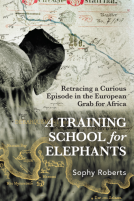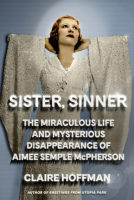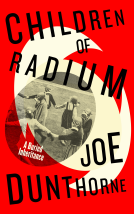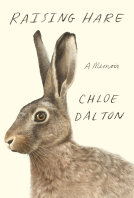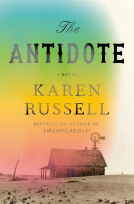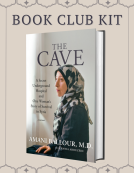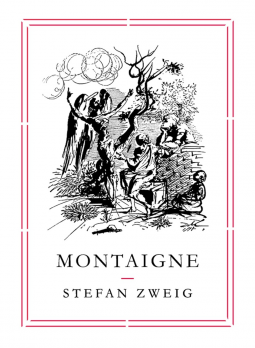
Montaigne
by Stefan Zweig
This title was previously available on NetGalley and is now archived.
Send NetGalley books directly to your Kindle or Kindle app
1
To read on a Kindle or Kindle app, please add kindle@netgalley.com as an approved email address to receive files in your Amazon account. Click here for step-by-step instructions.
2
Also find your Kindle email address within your Amazon account, and enter it here.
Pub Date Nov 10 2015 | Archive Date Sep 22 2015
Pushkin Press | Pushkin Collection
Description
Written during the Second World War, Zweig's typically passionate and readable biography of Michel de Montaigne, is also a heartfelt argument for the importance of intellectual freedom, tolerance and humanism. Zweig draws strong parallels between Montaigne's age, when Europe was torn in two by conflict between Catholicism and Protestantism, and his own, in which the twin fanaticisms of Fascism and Communism were on the verge of destroying the pan-continental liberal culture he was born into, and loved dearly. Just as Montaigne sought to remain aloof from the factionalism of his day, so Zweig tried to the last to defend his freedom of thought, and argue for peace and compromise.
One of the final works Zweig wrote before his suicide, this is both a brilliantly impassioned portrait of a great mind, and a moving plea for tolerance in a world ruled by cruelty.
Advance Praise
'[Pushkin Press's republication of Stefan Zweig's work] has been entirely successful. Zweigmania seems to break out with the publication of each book, with readers discovering his work by word-of-mouth and by accident' - Guardian
'[Zweig's] life and work tell of the perilous flimsiness of our world of security-a message that many insistently deny, but somehow need to hear' - John Gray, New Statesman
Available Editions
| EDITION | Other Format |
| ISBN | 9781782271031 |
| PRICE | $16.00 (USD) |
Featured Reviews
 Mandy J, Reviewer
Mandy J, Reviewer
Towards the end of his life Stefan Zweig discovered Montaigne and this biographical essay expresses what the writer came to mean to him. A personal and emotional response, the book gives an insightful and perceptive introduction to Montaigne’s writings, and is also a welcome addition to Zweig’s own writings. Another gem from Pushkin Press.
 Eric A, Reviewer
Eric A, Reviewer
Several years ago I read Zweig’s biography of Balzac and it remains one of the best biographies I’ve ever read. Balzac led an impassioned, rigorous and tragically bumbling life that is great fun to read about. But what was so gripping about this book was the tension between Zweig who was evidently a writer of high ideals and his subject Balzac who was a brilliantly gifted writer with frivolous values. Zweig was a man dedicated to art and a freedom of spirit. Balzac desired status and fortune and only wrote so prolifically to get himself out of the enormous debts he accrued through get-rich-quick schemes. Thus reading Zweig’s intense frustration at Balzac’s indifference to his obvious talent and foolish striving for material goods and pretentious society is incredibly compelling to read about. Zweig is a thoroughly subjective biographer who makes his opinions known in a way that works so well more than a biographer trying to present an objective portrait of a life. He sticks to the facts, but focuses on aspects of his subject’s personal history and the statements their work made which he deems important to our culture and that have the most relevance to where he was in his own life.
“Montaigne” is a biography which is almost more compelling for what it says about Zweig than it does about his subject. Translator Will Stone gives a thorough and intelligent introduction to this brief book which is more a sketch of Montaigne’s life than a comprehensive account. (His biography of Balzac was much more extensive.) Normally I get impatient with such introductions and want to get to the real text of the book I’ve bought. But Stone’s account gives vital information about where Zweig was in his life when he wrote about Montaigne and why he was so drawn to this subject at this point in his life. Zweig famously retreated to a house in Brazil to escape the increasing influence of Hitler’s rise to power and the authoritarian forces threatening Europe. Despairing about the state of the world, he and his wife committed suicide in 1942.
This biography was written in the crucial year before this act and the psychological cracks show in the text. The first section of the biography is an impassioned account of Montaigne’s high ideals. The values which he believed Montaigne exhibited are ones which felt so crucially relevant to Zweig’s own life that he seized upon him as a subject for the highest reverence. Zweig feverishly states: “Only he whose soul is in turmoil, forced to live in an epoch where war, violence and ideological tyranny threaten the life of every individual, and the most precious substance in that life, the freedom of the soul, can know how much courage, sincerity and resolve are required to remain faithful to his inner self in these times of the herd’s rampancy.” It’s as if he’s leapt upon Montaigne as a life raft in a time where he felt hemmed in by the ideological forces of his time which threatened the civilization Zweig valued so highly.
Zweig focuses on only the most crucial facts of Montaigne’s life, those which are relevant to him, and skips over huge chunks. What he seizes upon is gold and utterly fascinating. No doubt if Zweig had lived longer he would have written much more extensively about this famous essayist. I can feel very sympathetic to Montaigne’s abrupt removal from his family and public life in his late thirties since it’s the same age I’m at now. Montaigne retreated to a tower to study, read and write while blocking out the everyday distracting realties of the world as much as possible. As a great reader Montaigne felt “Books are my kingdom. And here I seek to reign as absolute lord.” It’s interesting the way that Montaigne’s life played out – because, of course, however much we try to completely retreat into books the world draws us back into it. Montaigne’s reading tastes suited Zweig perfectly as he remarks “Concerning Montaigne’s judgement on books I am 100 per cent in accordance.” Thus Zweig found in Montaigne an intellectual kinship across centuries and found strength to stand against the tyranny of his own time. More disturbingly, it’s possible that Montaigne’s reasoning might have heavily influenced Zweig’s own decision to end his own life. This can be intimated in the line: “the last freedom: in the face of death. Life hangs on the will of others, but death on our own will.”
This is such a fascinating book for what it says about both its biographer Stefan Zweig and its subject of Montaigne. I’m now inspired to go out and read more by both of these fascinating authors.
 Susan D, Reviewer
Susan D, Reviewer
Thank you to Pushkin Collection for re-publishing Stefan Zweig's biography of Montaigne. Zweig's personal, somewhat casual, yet highly informed style of writing for biography totally engaged me in Montaigne's life and also led me to a renewed wish to read the Essays sooner rather than later. In this current age of vile and petty discourse, I enjoyed the call to searching for "knowing the self." Very little of this is in evidence in the public forum today leaving Montaigne's wish for solitude so understandable. Also his wish for travel in order to know as many people and customs different from himself and those he already knew as possible.
Those who have read other of Sweig's biographies will not be surprised at the lack of citations for quotes in the text. I noted the lack of footnotes in Marie Antoinette: The Portrait of an Average Woman. While at first this may have irked me in this latter book, I grew not to mind it at all. And in Montaigne it really did not bother me as I knew that the source was Montaigne unless another source was mentioned, such as a letter from the king. I am only mentioning this as it is a Zweig quirk, not a publishing error.
I highly recommend this as a brief and engaging introduction to the life of Montaigne and a glimpse into the Essays. What better service can a biography provide than to whet the appetite for the works of its subject.
A copy of this book was provided by the publisher through NetGalley in return for an honest review.
